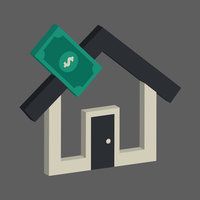Using Your Home for Income, Part 2: Pros and Cons of Reverse Mortgages
There's a reason homeowners are required to undergo financial counseling prior to taking out a reverse mortgage -- they're confusing. This primer will help you get a handle on the scenario.

In Part 1 of this series, we covered the basics of a reverse mortgage, a retirement income strategy that is growing in popularity among older homeowners. One of the reasons for this growing usage of reverse mortgages is that many retirees or near-retirees discover that they simply don’t have enough income to comfortably retire.
Extra income is one of the key strengths of reverse mortgages. But there are some cons as well. Let’s take a look.
Benefits and Drawbacks
The primary benefits of reverse mortgages are that they do not require monthly payments from the borrower; the proceeds from the loan can be used without restriction; the money can be used to pay off the existing mortgage, and that the funds can improve your monthly cash flow.
The drawbacks, however, bear some consideration. First and foremost, the whole thing can be a bit confusing. Who is getting paid when, and when does it need to be paid back? Who is paying it back? (More on this in a moment.)
Fees and other costs associated with securing the loan can be high; closing costs are higher for a reverse mortgage than they are for a typical mortgage—as is the interest rate. And the homeowner must maintain the home and continue to pay property taxes and homeowner’s insurance. Failure to do so can lead to significant consequences, such as having to pay the loan back early. If you have plans to will the home to a family member, a reverse mortgage can complicate those plans.
Because of these questions and complications, homeowners interested in pursuing a reverse mortgage are required to receive mandatory (free) counseling by an independent third party from an organization such as the American Association of Retired Persons. This review session can help you determine whether the benefits outweigh the drawbacks for you, and it’s one of the reasons reverse mortgages no longer have a very negative stigma associated with them.
The Tricky Questions
Perhaps the most significant drawback of a reverse mortgage is that using the equity in your home for living expenses today means a smaller estate for you to pass along as an inheritance. Those sticky questions above about who pays for the loan and when? The answers can be a little complicated, but it usually amounts to: the borrower’s heirs, and very soon. Yes, the heirs will use the actual sale of the home to pay back the loan, but that will obviously mean a significantly lower inheritance.
In Part 3, we’ll look at downsizing the home as a source of income.
ACTIVA BioACTIVE Bulk Flow Marks Pulpdent’s First Major Product Release in 4 Years
December 12th 2024Next-generation bulk-fill dental restorative raises the standard of care for bulk-fill procedures by providing natural remineralization support, while also overcoming current bulk-fill limitations.